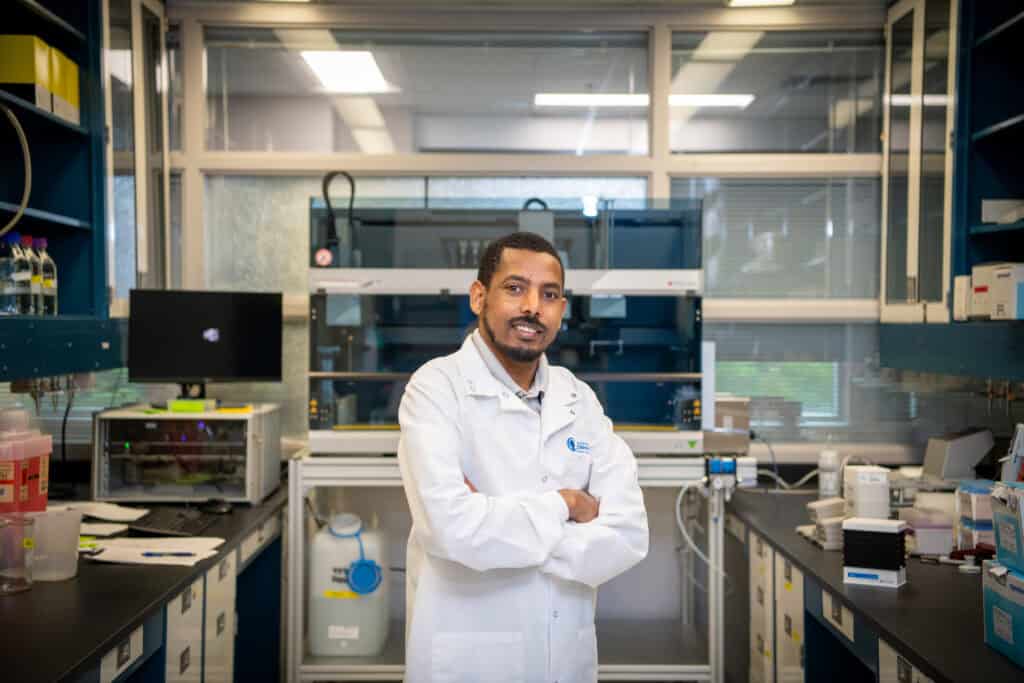Upon entering Addis Ababa University (AAU) in Ethiopia, Hailemariam “Haile” Abrha Assress had hopes of becoming a pharmacist. After graduating with distinction near the top of his class in 2007, Haile stayed on as a Graduate assistant. He completed his master’s degree in Pharmaceutical Chemistry in 2011 and continued to work for another five years as a lecturer. During his eight years at AAU, Haile taught undergraduate pharmacy courses, oversaw internships, mentored undergraduate students, and eventually worked as the assistant dean of School of Pharmacy. Still, he was motivated to further his own academic goals, and in 2016 entered the University of South Africa (UNISA) College of Science and engineering to pursue a Doctorate in Chemistry.

Haile’s PhD project sought to address the hypothesis that release of antifungal drugs into aquatic environments may be critical in the evolution and spread of antimicrobial drug resistance, which can enter the clinic in a variety of ways and infect immunocompromised patients. Indeed, by combining cutting-edge mass spectrometric techniques with molecular techniques like metagenomics, his work demonstrated for the first time that azole antifungals are present in drinking and wastewater at sub-lethal concentrations that can cause development of drug resistance in the environment. This opened the door to join in on Norman Early Warning System 2 (NormaNEWS2) international activity, a retrospective analysis platform for laboratories active in non-targeted screening of emerging pollutants. In collaboration with other researchers, he successfully proposed and obtained research funding from the South African Water Research Commission which supported the development and use of innovative strategies for water quality assessment in the participating laboratories around South Africa.

For his postdoc at the Metabolomics and Analytical Chemistry Core Facility at the ACNC, Haile continues to build on his expertise in mass spectrometry by moving into human research studies. The ACNC performs team-based research in child development at the molecular level (gut microbiota, epigenome, cell signaling and energetics and changes in metabolome) while examining in parallel how these factors affect body physiology, brain development and behavior. The Metabolomics core assists researchers and collaborators in the analysis of metabolite and lipid profiles in a variety of human and animal samples. Haile designs and executes experiments to profile metabolic contents of biological samples using advanced mass spectrometric instruments such as Orbitrap and cyclic ion mobility mass spectrometers. His expertise and capacity in mass spectrometry has contributed to several cohort studies, and he has been invaluable in grant writing, scientific writing, and in the presentation of his research at scientific meetings. A father of two, Haile also mentors junior members of the lab and is recognized around the Center as a friendly, supportive, knowledgeable, and spirited member of the team. Dr. Assress aspires to expand his knowledge of mass spectrometry workflows and applications and grow into an independent consultant and/or trainer in the field.
